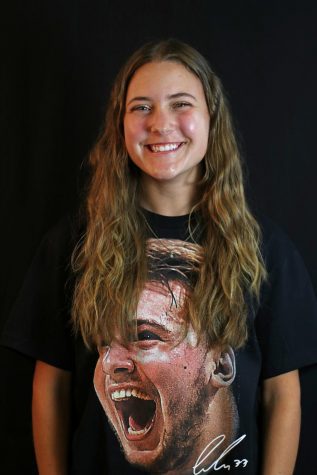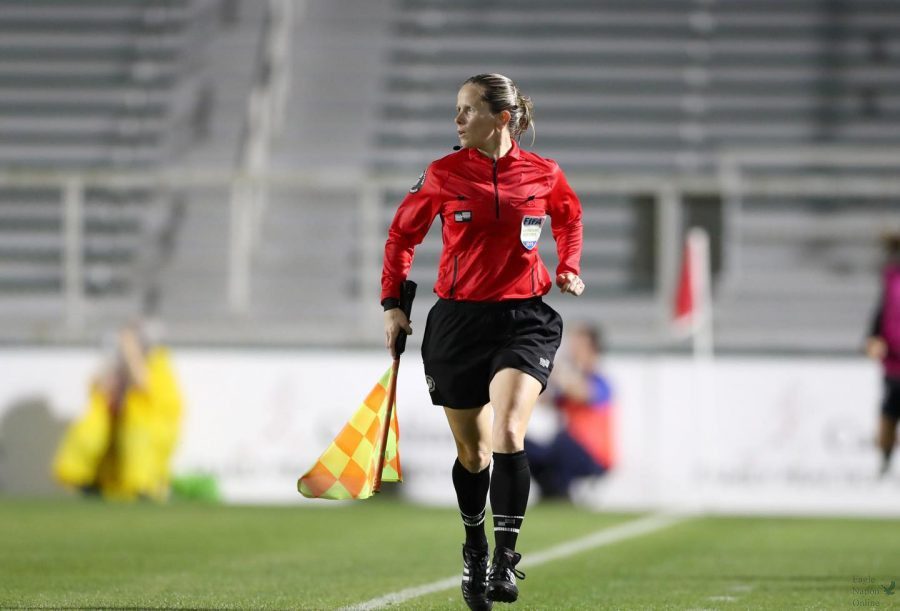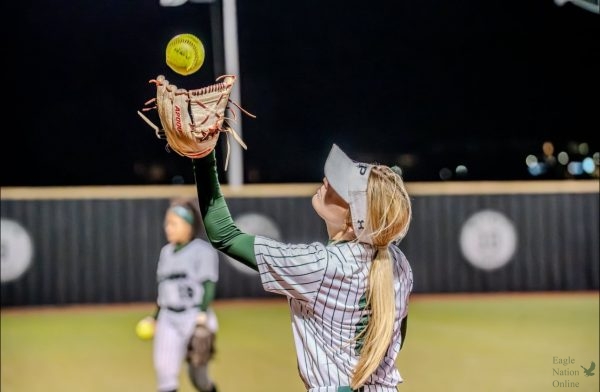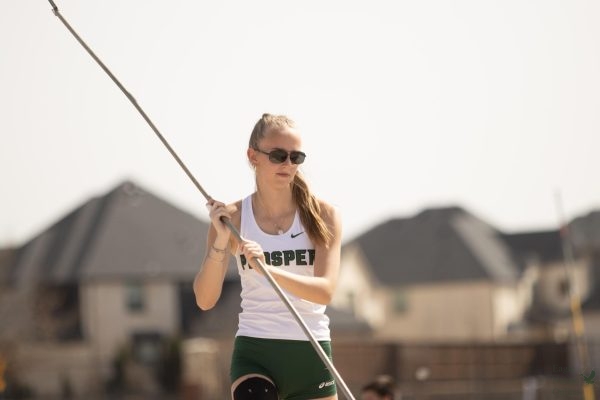Changing the game: world history teacher referees for World Cup qualifier match
Running along the sideline, teacher and coach Jennifer Garner watches the match. Garner has been a professional referee since 2013 and received her FIFA badge in 2018. “I truly love the game of soccer and the reason I started refereeing is because I wanted teams and players to have referees that care and that put in a lot of work and effort to do the best job that they could,” Garner said. “As a player, I always noticed when a referee truly was working hard and truly cared as opposed to sometimes having referees that are just there.”
Fans cheer. Music echoes through the stadium. Colorful face paint covers the crowd. From the stands, triumph rings loud with unified voices screaming above the tension on the field – but for world history teacher Jennifer Garner, it also rings with the blow of her whistle.
Garner worked as an assistant referee for the Aruba vs Suriname Concacaf 2022 World Cup Qualifier game hosted March 27 in Bradenton, Florida, alongside three other female officials. Garner’s rise through the ranks sprouted from playing soccer at a young age and eventually led to a jump into the referee pool.
“I went from being just one of the referees that you could see out at the fields on the weekends reffing little kids’ games, to starting to move up over the years, to very quickly doing older kids’ games, to doing adult games,” Garner said. “I made my professional debut in 2013 when the National Women’s Soccer League started playing.”
FIFA assigned Garner the match because of her completion of the men’s fitness test, which is required for all officials to pass in order to work an international men’s match. Garner sees her place on the field as an honor, being surrounded by such dedicated players.
“My favorite part was literally just the game itself,” Garner said. “Just being on the field with international players from their country, who play all over the world, but then come home to represent their country because the World Cup is the biggest event in soccer, period.”
Garner said that despite being a qualified referee, the obscurity of women officials in men’s sports is still prominent, especially in soccer.
“So there’s a small group of us that qualified and were put on matches, and it made history, which was really cool. But, the fact that it’s making history and the fact that it’s a big deal and in the news is kind of showing you that it’s still evolving,” Garner said. “Really, what we’re after is in the end for it to not be the story, but for it to just be a norm that the most qualified referees are on the match as opposed to, ‘Oh, there’s a female on this match.’”
Garner received her FIFA badge in 2018 and describes her career as an opportunity to show young female soccer players that women can work on an equal or higher level than men.
“It’s becoming, particularly in the last year to two years, more and more common that women are breaking those barriers that they’ve been qualified to do these games in the past, but they weren’t given the opportunity for various reasons,” Garner said. “I think at this point, for whether it’s a young soccer player that is still playing the game, and maybe they start refereeing later, or maybe they never referee, but they see that there’s women on the field with men, I think that’s great for them to be able to look at, and that it’s not your gender that determines your matches or the games that you get assigned, but your abilities.”
While Garner accomplished another first in her career with the World Cup match, she said her plans and goals to referee will continue as long as her abilities allow her to do so.
“My current goal is to work Major League Soccer games,” Garner said. “I’m hoping to get some MLS assignments this year, and that would be another first for me.”
Humanities teacher Jeffrey Kear, who coached high school soccer for 20 years prior to coming to Prosper High, said that Garner’s level of accomplishment in refereeing goes beyond the surface level.
“Being a referee isn’t what’s cool about it because even high school kids can be referees,” Kear said. “But, she’s refereeing at such a high level, where she’s had to pass physical exams and practical exams, and she’s had to be evaluated in her work. There just aren’t many people like her.”
Kear describes Garner’s “double life” as an inspiration to students in the way that it teaches them that one occupation doesn’t define your entire character.
“We have a tendency to identify people by this thing that they do, and that’s just what they are,” Kear said. “So, here she is, she’s this smart history teacher, but then you find out that she’s also a referee in these very high-level international games, and she becomes a more rounded personality and the kids can say, ‘you know what, I’m a soccer person, but that doesn’t mean I can’t be good at history.’”
Even though women referees have been around for years, Kear said that Garner’s wave of women referees has ignited the fire of prominent female officials across the globe.
“With her generation of women doing this, is that they’re not only refereeing women’s games, but we’re seeing more crossover,” Kear said. “She’s on the leading edge of the crossover, where it’s your knowledge and your ability that matters more than your gender, so that’s pretty cool.”
Principal John Burdett, who also coached soccer, said that her accomplishments show how one can be successful in and outside of their usual environment.
“One thing I love about her, what she does here, she’s an incredible teacher, so refereeing doesn’t steal from her job here,” Burdett said. “It shows that you can do incredible things in your occupation, but in your hobbies or your interests outside of here, you can also elevate and live up to your full potential.”
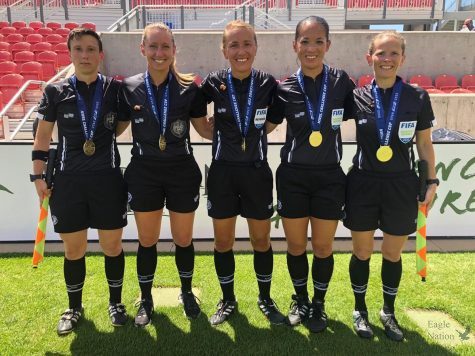
Burdett said that Garner is at “the pinnacle of what she does outside of here,” and her role as an international official connects Prosper to the rest of the world.
“The rules of soccer transcend gender – if you know the rules, you know the rules. If you can play, you can play,” Burdett said. “I think that’s a positive benefit that she brings from a global perspective and lands in the place we call home, Prosper.”
Through all of the training and exams, Garner reveals what she said is her true motive for being a referee: to give back to the game she loves and to serve the next generation of players and referees.
“I truly love the game of soccer, and the reason I started refereeing is because I wanted teams and players to have referees that care and that put in a lot of work and effort to do the best job that they could,” Garner said. “As a player, I always noticed when a referee truly was working hard and truly cared as opposed to sometimes having referees that are just there.”
Your donation will support the student journalists of Prosper High School. Your contribution will allow us to purchase equipment and cover our annual website hosting costs.
